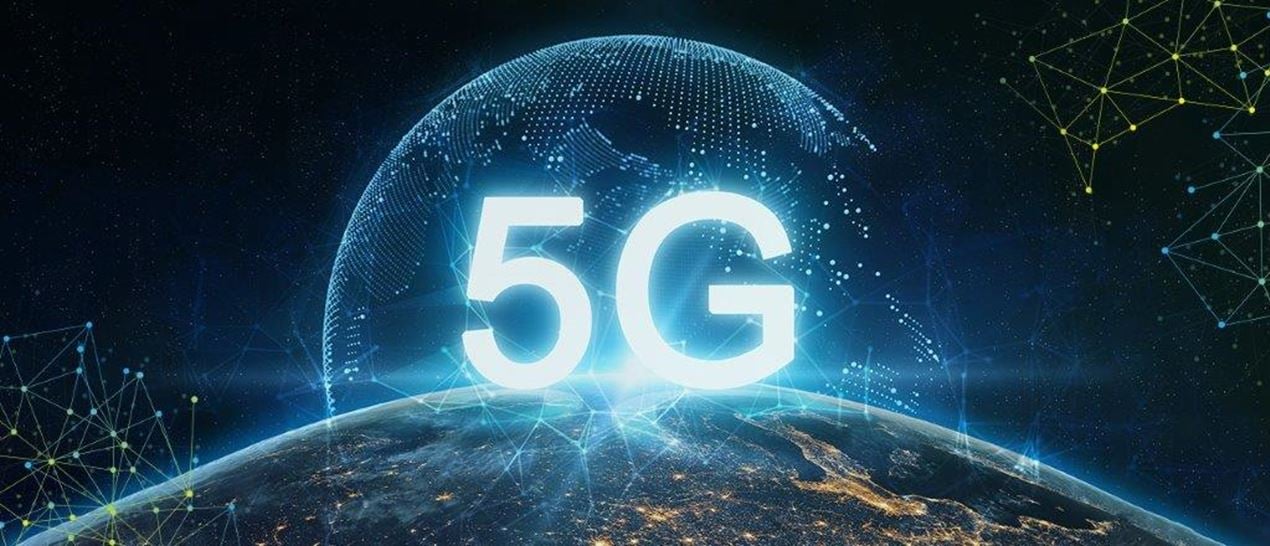
5G Technology: Transforming Communication and Connectivity
5G is the fifth cellular technology in the telecommunication sector. It’s the new internet connectivity that comes after 4G and promises to deliver more advanced features. 5G has high speeds, low latency, and more reliability. The world will have safer transport systems, advanced healthcare services, digitalized logistics, and other significant business impacts.
Table Of Content
- What’s the Evolution 5G?
- Why is 5G Technology Important?
- Which Businesses Will Benefit from 5G Technology?
- 1. Communication Service Providers
- 2. Automotive
- 3. Healthcare
- 4. Manufacturing
- 6. Better governance
- 7. Improving Rural Connectivity
- What are the Demerits of 5G Technology?
- 5G Technology Vs. 4G
- In Conclusion
Let’s learn more about the emergence of 5G technology and its benefits in transforming communication and the economy.
What’s the Evolution 5G?
The emergence of 5G technology has gone through the following stages:
- The 1G era – is defined by short conversations between a small number of people and briefcase-sized phones. It began in 1980 and supported mobile voice calls
- 2G – marked the demand for mobile services. Started in 1990, it supported mobile voice calls and sms.
- 3G – defined by small phones that could fit your pocket and internet access that encouraged mobile browsing. 3G occurred in 2000.
- 4G – marked by smartphones, app stores, and YouTube. 4G started in 2010 and supported mobile video consumption and higher data speed.
- 5G – reshaped professional and personal lives by enabling advanced technologies like connective vehicles, enhanced video, and gaming. 5G emerged in 2020, and its main goal is to enhance experiences and drive the digitalization of industries.
Why is 5G Technology Important?
Currently, there is a high demand for the Internet globally. More businesses and industries have transformed to remote or virtual services, especially after the hit of Covid 19. Additionally, more professionals are offering services or products online and require stable internet connectivity. Also, there is the emergence of new technologies like artificial intelligence, automation, and the Internet of Things (IoT) that require faster and more reliable Internet.
5G connectivity will lead to industry transformation because the current mobile infrastructure wasn’t designed for it. Thus, tech companies are now designing new phones that support this technology. 5G will also support various technologies like drone delivery, video chatting, console-quality gaming, and cloud applications.
The world will become a better place gradually through the following benefits:
- Enhanced global payments
- Improved emergence response
- Better distance learning services
- Mobile workforce
Which Businesses Will Benefit from 5G Technology?
5G technology will have a transformative impact on economic growth. The following sectors will be directly affected by 5G technology:
1. Communication Service Providers
Communication service providers supply 5G networks, devices, and services. So, these companies will expand to manufacture devices that support 5G and skill their team with support services. So, since this network has more economic benefits, communication service providers will get higher revenues due to the available market for their products and services.
2. Automotive
5G will provide more safety in the transportation sector due to the use of automated vehicles. These cars require 5G technology to receive faster instructions. This 5G network will make vehicles connect seamlessly and reliably.
It will also support smart grids that are essential for electrical charging. This connection of smart grids will lead to the spread of environmentally friendly electric engine vehicles.
3. Healthcare
5G technology will support the healthcare sector by creating devices that can diagnose and transmit real-time information about a patient’s health. For example, wearable and ingestible are likely to become more common in providing feedback data. This improved monitoring will result in better-personalized healthcare for patients and early diagnosis of diseases. In modern days, you can just get all tips, care plans and diagnosis for most minor injuries, for example you can browse risk for bleeding nursing diagnosis if you accidentally get a minor or major cut while at your errands.
4. Manufacturing
The automation process will become more complex with 5G technology. There will be more growth in augmented reality, 3D printing, and cloud computing that require 5G connectivity.
6. Better governance
5G technology will lead to the development of smart city infrastructures and e-government systems. This growth will result in quick processing, better government services, and receiving of real–time information on emergencies from officials.
7. Improving Rural Connectivity
Remote working and distance learning has become the norm since Covid 19. The rollout of 5G has helped people living in remote areas get work connectivity. Additionally, learners studying online can learn smoothly with high-speed 5G internet connectivity.
Students can easily download learning materials online, like to kill a Mockingbird summary essay and even stream videos for practical lessons. Teachers can also share learning tutorials/ guides for different courses and access their learners virtually.
What are the Demerits of 5G Technology?
Not all industries will benefit from the 5G technology; some will be negatively impacted.
- Media and entertainment – this sector must transform to fit the customers’ needs. Most people will enjoy live streams from the comfort of their homes. Thus, businesses with the Netflix model will be better placed, while others will face a major threat from this connectivity.
- Employed professionals – with more connectivity for 5G technology, most office jobs will be slashed as people transform to remote. Improved remote access will lead to more virtual opportunities and, thus, a challenge for salaried individuals, as some will be fired due to the digitization of systems.
5G Technology Vs. 4G
5G technology runs on the same frequencies as 4G, 4G LTE, and 3G, but it has several differences:
- Faster speeds – 5G is ten times faster than 4G, with 10 gigabits per second. Thus, you can handle intensive tasks such as downloading film or backing up a database in less time.
- Low latency – latency is the delay between sending and receiving information. 4G received a latency of 200 milliseconds, while 5G has one millisecond.
- Built for crowds – 5G can help you stream, share, and post work without being slowed down by those around you due to higher bandwidth.
- Safer than public WIFI – it’s safer to use 5G than public Wi-Fi. You don’t have to worry about snoopers.
So, in short, 5G network provides more coverage than 4G, has a higher data bandwidth, and low latency compared to 4G.
In Conclusion
5G technology is expected to offer more benefits to the economy. Digitization will improve both cities and remote areas by creating more opportunities. People will access more products and services online, distance learning studies, advanced personalized healthcare, and transport systems.
Though this technology has a few disadvantages, the merits are more beneficial. Let’s embrace this new evolution for better personal and professional experiences.






